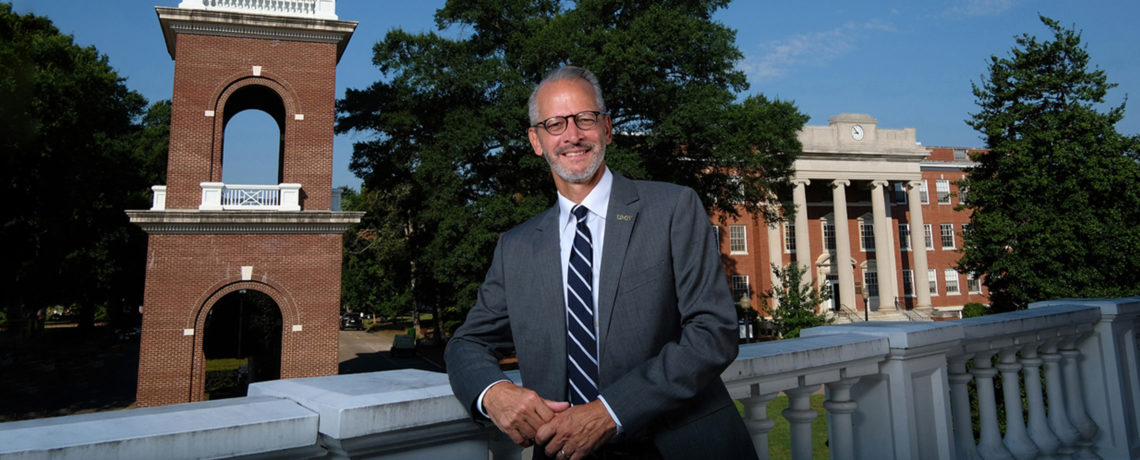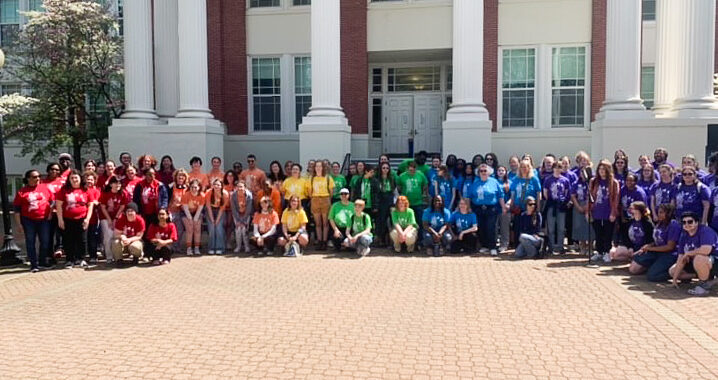President Paino communicates with students via email
3 min read
UMW website
By ETHAN RATLIFF
Staff Writer
On Feb. 12, a message from President Troy Paino was sent out via email to students which addressed issues apparent in the leadership of the Commonwealth of Virginia. The message, similar to other releases from President Paino, addressed the issue and spoke of the goals, values, and standards of the UMW community, and focused on the need to hold to these when dealing with hate and intolerance. President Paino differed from past messages by announcing that this message is the first in a series of regularly released messages that will, “explore issues of importance at the University.”
“When I got here to Mary Washington there was an employee survey that was done the spring before [that] showed areas of concern the campus had, and one of those areas was communication,” Paino said. “People felt that there was a black box here in George Washington Hall and they didn’t know what was going on. So I’ve been trying to figure out ways to more effectively communicate with the campus.”
Paino said the suggestion to start a more regular “layer of communication between [himself] and the campus” came from the dean of the College of Business, Lynn Richardson.
“I started writing a few weeks ago and it just kept being longer and longer and longer, all the things I wanted to talk about,” Paino said. “But I realized that maybe the best way to approach this is through a series of communications, to have a regular Message from the President.”
The first message dealt with a statewide issue, but it specifically addressed actions that were and are in progress at UMW that deal with diversity in the community. Paino specifically spoke on the the actions of the Campus Environment Presidential Ad Hoc Committee and the President’s Task Force on Diversity and Inclusion. Both groups, made of a mix of faculty and students, have made steps to improve the environment and inclusivity on campus.
“I think that having the backing of students and faculty within conversations about these issues is important,” said Cristina Montemorano, a senior anthropology major. “The results of their conversations will influence diversity on campus, and the students need to be part of those conversations.”
Future messages will focus on informing students of similar actions taken by committees and will work to address the perceived lack of information among students.
“In the absence of information, people will fill it with rumors,” Paino said. “This offers me a forum to have a conversation or to address some of them.”
Many find this new bulletin helpful and informative, and embraced the unique closing signature from Paino, which instead of a traditional signature including doctorates, position, and last name simply said, “Troy.”
Paino laughed when asked about the signature.
“When I signed it that way my chief of staff said ‘Do you want to just leave it Troy?’ and I did think about it, I thought consciously ‘Yes.’ I think my informality is a reflection of Mary Washington’s network, a fairly informal place that we don’t take each other too seriously. We support one another and I’m glad that students get to know me in a less formal way.”
Some students thought email might not be the best way to communicate Paino’s goals.
“I think it’s a good idea that they are having focus groups, but I don’t pay much attention to those emails,” said junior music and history major Kassie Phillips. “They get buried under the 24,000 other emails I get in my inbox.”
Other students read the email but disliked the fact that it wasn’t sent from Paino’s email address itself, but through Anna Billingsley.
“Although I liked the content of the message, I wish the message had come directly from him,” said junior communications major James Rolland. “I feel like something this important needs to come directly from his inbox.”
Paino’s goals for furthering engagement with the student population include public forums to be hosted after spring break.
“I want students to know though that I am very accessible and if they want to come and talk to me or make me aware of something, that they always can contact my office and get in to see me,” he said.
Paino plans to release new Messages from the President monthly, hoping to have another one out once students come back from spring break.











